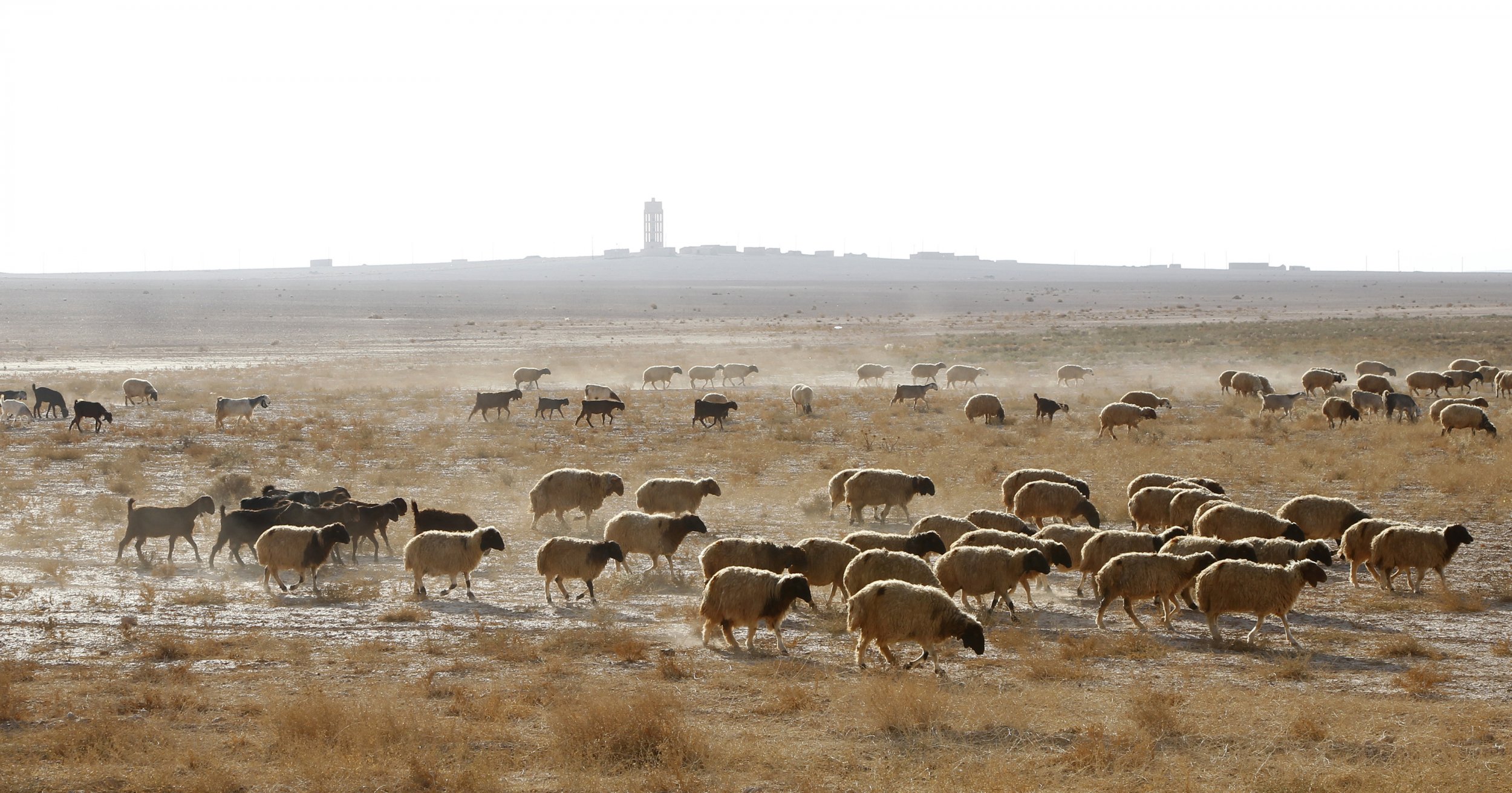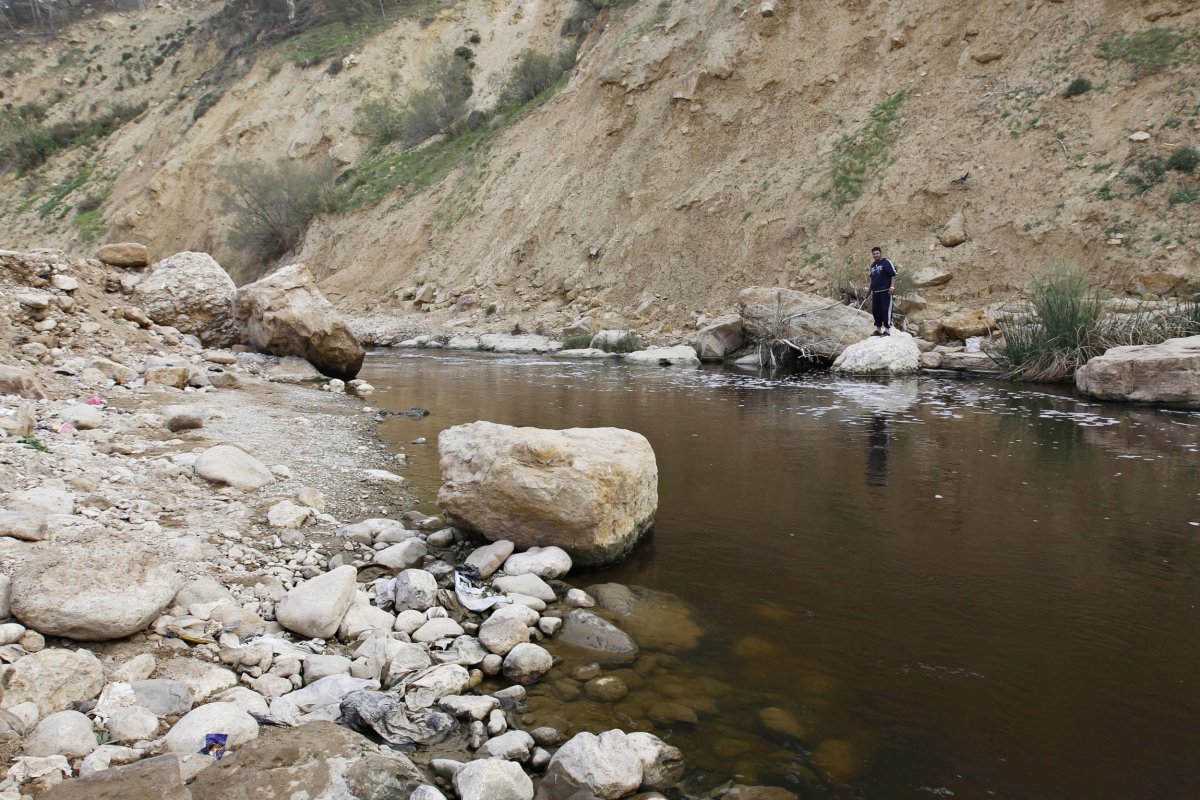
Water drives cities—which is why droughts can cause mayhem for them. Even cities that don't directly experience severe drought can feel the ripple effects, too. Social, political and health crises often result from droughts and a changing climate, and they appear to have done so in the ancient biblical city of Dan, according to a study published in Science Advances.
Water was a key factor for the growth of cities 6,000 years ago in the Mesopotamian marshes, the authors of the study, led by David Kaniewski of Paul Sabatier University in France, wrote. The biblical city of Dan—in present-day Israel—was known to host well-watered and fertile marshlands. Between 2,500 B.C. and 400 A.D., Dan was nestled at the tributary of the Jordan River, and the modern archaeological site remains between the drylands of the Hula Valley and the Golan Heights.
The authors wrote that "the use of freshwater supplies as a 'weapon of war' was precocious." Urban growth, increasing trade networks and the rise of dominant political powers were all happening alongside periodic severe droughts and declines in water availability. As a result, limited water resources "became an object of military conquest, a source of political leverage, and a tool and target of conflict."
Based on pollen data in sediment samples from a present-day avocado orchard near the archaeological site, researchers uncovered the vegetation patterns and available water supply over thousands of years.In combination with 50 years of data from previous excavations, the authors propose the city of Dan saw an influx of people during three periods: 2,500 to 1,950 B.C., 1,050 to 840 B.C. and after around 550 B.C.
The researchers believe that farmers migrated to urban centers—like Dan—where there was food and water during times of severe drought. Similar drought-triggered migrations have been seen in modern times, the authors point out.
"This outcome was witnessed in modern Syria during the three-year drought in 2007 to 2010, which resulted in widespread crop failure and a mass migration of farming communities to urban areas," the authors wrote, referencing the 21st-century drought, which is often associated with the ongoing civil war in Syria. That conflict has caused a massive refugee crisis of at least 5 million Syrians fleeing the country.
The migration toward riverbanks thousands of years ago in Dan "created rivalry for resources, tensions between groups and, finally, the semi-abandonment of the city."
The authors estimate that once the water was no longer maintained, irrigation reservoirs, channels and other water system infrastructures decayed to ruin. Standing and dirty water was left for malaria-infected mosquitoes—which in turn would have caused the once-lush lands to become ravaged by water-borne and mosquito-borne diseases.
Drawing on the historical context surrounding Dan, authors cite how malaria was associated with the marshes since the era of Hippocrates in 500 B.C. The disease affected population density and shaped human lifestyles throughout history.

A changing climate, the study concludes, resulted in social, political and health crises in the ancient city of Dan. Researchers made the broader connection to the present-day climate change crisis mostly induced by greenhouse gas emissions from humans' overuse of fossil fuels.
"Ancient Tel Dan underlines the threat of water-borne disease in the current context of global climate change," the authors said. "Although malaria remains of great concern, the recent outbreak of Rift Valley fever in Africa and the Arabian Peninsula would suggest that changing climate and unmanaged water systems will serve as catalysts for water-borne diseases, with significant implications for the health of local populations."
Uncommon Knowledge
Newsweek is committed to challenging conventional wisdom and finding connections in the search for common ground.
Newsweek is committed to challenging conventional wisdom and finding connections in the search for common ground.
About the writer
Sydney Pereira is a science writer, focusing on the environment and climate. You can reach her at s.pereira@newsweekgroup.com.
To read how Newsweek uses AI as a newsroom tool, Click here.








